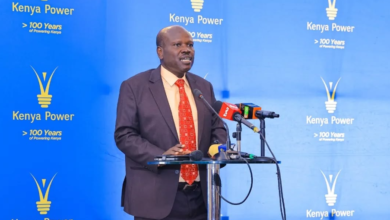
The National Government in partnership with the World Bank has initiated several economic stimulus packages in Taita Taveta County aimed at uplifting the livelihoods of the extremely poor households.
The pilot programme is being implemented through the Kenya Social and Economic Inclusion Project (KSEIP) and supervised by the Global Development Incubator (GDI), which has successfully piloted the same project in Turkana County.
The project will be in form of stimulus packages to households in clusters of 30 villages, spreading across all the 150 villages of Mwatate and Taveta Sub-counties.
Each individual in the cluster is set to get Sh 2, 000 each month and a lump sum of
Sh30, 000 at the onset of the project.
With Sh 30,000, individuals can pool their resources and start a common economic project.
A survey was conducted by GDI to identify the probable economic and business activities that the beneficiaries can engage in.
Some of these activities include crop farming, livestock rearing, poultry keeping, and beekeeping, among other local business opportunities.
The project is currently targeting 750 extremely poor individuals in the 150 villages of the Sub-counties of Mwatate and Taveta.
Speaking during a stakeholders’ meeting in Mwatate, yesterday, Japheth Rigah, the Mwatate Sub-county Social Development Officer said the project was a perfect idea that would lift tens of hundreds of individuals from extreme poverty.
The Development Officer added that the project was at the implementation phase and called upon all stakeholders to support it in whichever way to make it a success.
“This is a noble opportunity that will see tens of hundreds of individuals and households lifted from extreme poverty. We are now ready to implement the project and we call upon all the stakeholders to support us to ensure that we get many success stories from this endeavor,” stated Mr Rigah.
Before the start of the project, beneficiaries will be trained on identifying profitable and sustainable opportunities, bookkeeping, and the basics of running their small projects.
There will also be continuous supervision by GDI officials to offer technical support.
The first inductees are set to start the project in the next two months or so and be incubated for one year. There will be two surveys done during the period of the project mid-line and end-line surveys.
These surveys will help measure the success or the failure of the entire project, with the findings and recommendations forwarded to the National Government.
Fondo Emannuel, GDI County Project Manager, shared the technical details and tools that have been used to identify the beneficiaries, implement and track the project, and gather data for accurate decision-making.
GDI used the poverty index data provided by the Kenya Nation Bureau of Statistics (KNBS) to identify the beneficiaries. Mwatate and Taveta sub-counties have the largest pools of individuals in the extreme poverty economic tier with more than 35 per cent of households living on less than a dollar per day.
To run the project, GDI is currently recruiting two mentors each to be in charge of each Sub-county and 15 enumerators each to be the point person in a cluster of 10 villages.
The results from this community-oriented economic empowerment will be compared to the National Cash Transfer program currently targeting the old and extremely poor individuals throughout the Country.
These efforts are in line with the National Government and global agenda to end extreme poverty and hunger by 2030.
Kenya has taken bold steps towards uplifting the masses from poverty through empowering women and the youth by creating a good environment for businesses and advancement of funds to the deserving groups.
These efforts have also been boosted by mobile money and the relentless telecommunication revolution in Kenya.





